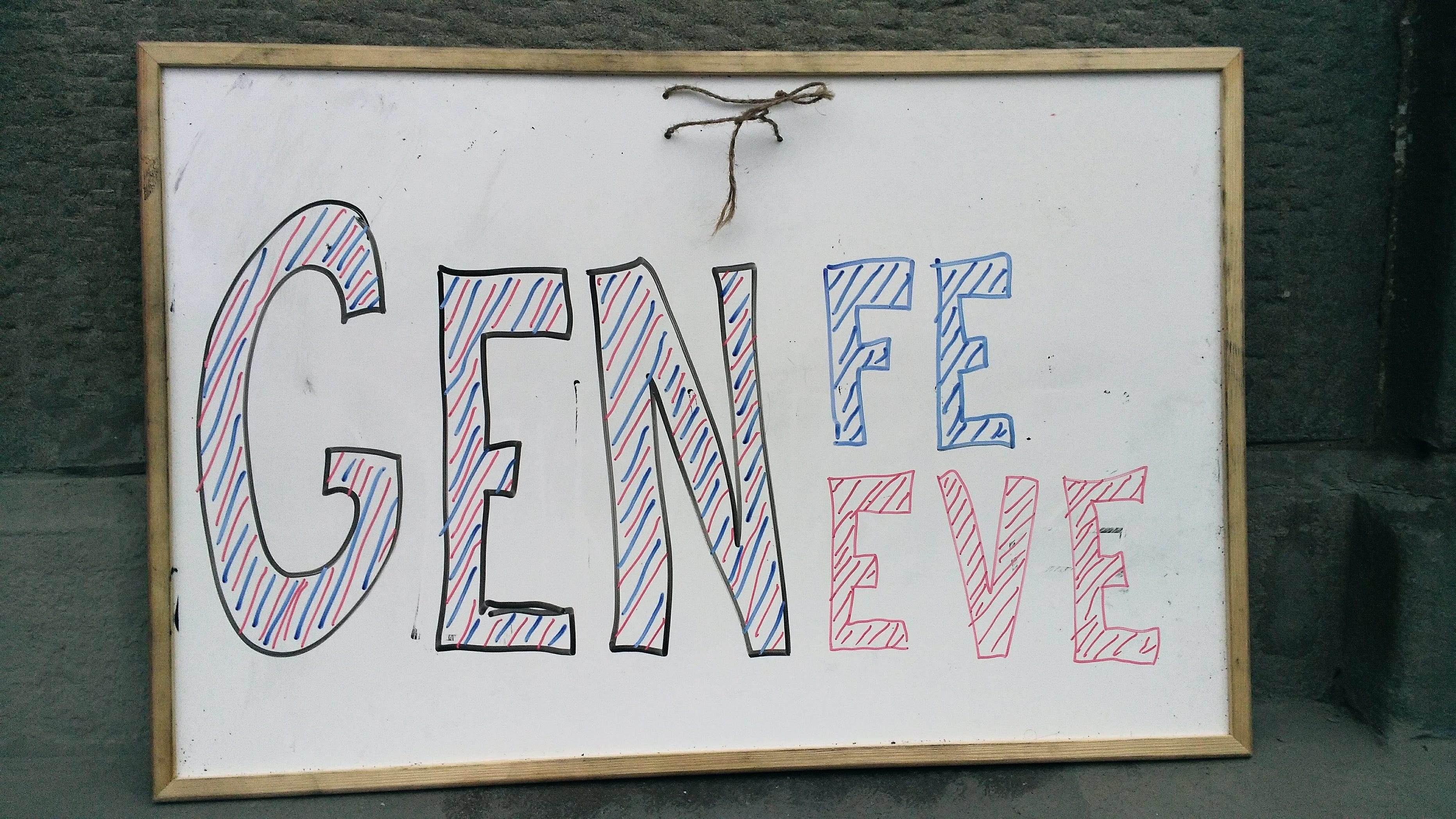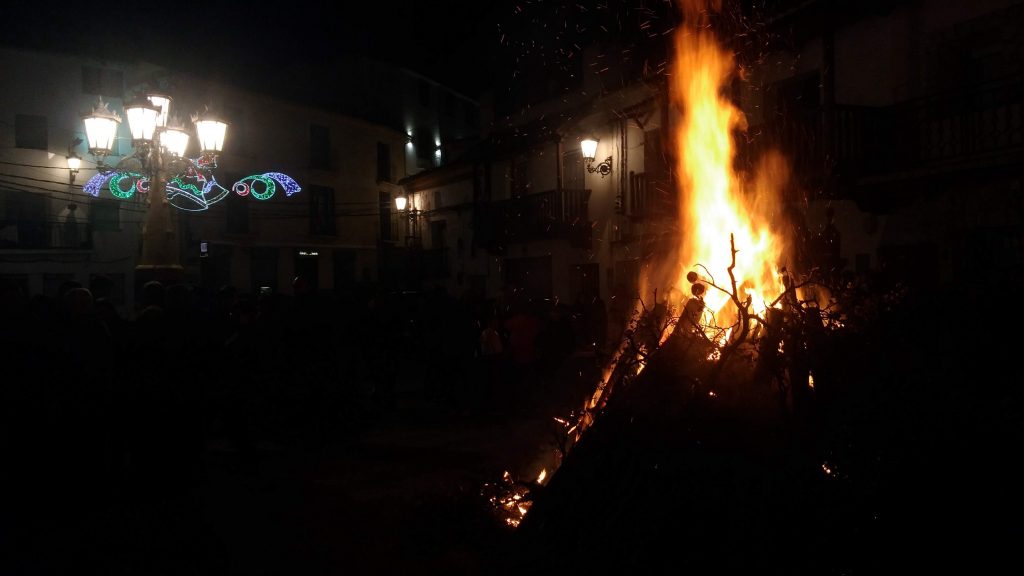My latest trip taught me various things like, ‘Do not travel with stuff you don’t want lost’, and ‘Don’t leave your jacket in reach of wild boars that people keep as pets,’ and ‘If you travel with a container full of active sourdough, expect it to ooze out and onto your belongings.’ Then there’ve been other observations, like ‘Don’t hitchhike on religious holidays – cars are full, and no one stops.’ I learned that the day I left for my journey on All Saint’s Day, and I had to walk hours into the night hoping there’d be a motel at the next village…
For four months, I hitchhiked from Lithuania, mostly volunteering in Spain and France in exchange for food, lodging, and experience (building & forestry). Each place taught me something in particular that ties up our current global predicament.

Even The Rich Have Money Problems
I left Lithuania on November 1st and I quickly learned winter time hitchhiking is hard. The days are short. It’s cold. The further south I got, the more people picked me up and I caught a glimpse of ordinary people from many facets of society. Whether it was in Poland or Switzerland, people complained about money. Heading west from Zurich, a financial analyst gave me a ride on his way to work on a Sunday. He worked overtime to afford the apartment he shared with his siblings and parents.
A joke: ‘Why did humans create an economy? — So they’d have something to complain about.’
The Forests Will Burn
Mid-November, I started volunteering in the depopulated hills of central Spain, near the Enguidanos. “We used to get snow this time of year,” Juan, my host told me. “Now we don’t even get much rain.” Days are sunny and warm, nights are cold, and sometimes freezing. Summers mean heat, drought, and fire hazard since fast-growing pine forests cover the landscape, and burn easily. “It wasn’t always this way,” Juan told me, “there’s the saying a squirrel could travel from the bottom of Iberia to France without once touching the ground, hopping from oak to oak.” That changed because we humans over millennia cut trees and… you get the point. He continued, “We’ve unknowingly cultivated a situation where we have to cut trees down to protect our environment because it’s not a question anymore of if it will burn, but when.”
Our Rivers Will Brown
Mid-December, I returned to civilization in Valencia where my TrustRoots host helped me find a room over Christmas. Two days later, I moved into an apartment full of musicians in the center of Benimaclet, an artsy, alternative-minded neighborhood outside of the capitalist/touristy center.
Unlike in the Spanish interior, it doesn’t get much colder than 14ºC in Valencia. Despite the beautiful city landscape and enjoyable weather, I quickly learned, they have their own problems. If you don’t know, Valencia is the orange grove of Europe. Despite growing enough oranges to sustain a population on orange juice alone, bottled water is the only safe water to drink. Why does Valencia have the dirtiest water in all of Spain? Because of all the fertilizer farmers use to grow the food we’re all dependent on; it all runs off into the rivers.
It’s the same problem I saw in New Zealand. Farmers switched from sheep to cows to make a bigger profit. Over the years, the nitrogen-rich cow manure over-saturated the ground, now it ends up in the rivers turning them brown. Another example of how our economic system sabotages our future…
Monoculture farming + chemical fertilizers make for dirty water wherever you go.
Cogs in a System
Are climate activism and eco-awareness applicable to the whole world, or only to us rich? I had my own such revelation Christmas as I walked down a quiet sidewalk where a dark-skinned Pakistani was sorting fruit to close down for the night. Innocently, I asked, “Could I have any food you’re throw away?” — “Wait, wait,” he said. He ran into the store, returned with two good apples and said, “You eat these. You wait here 10 minutes, come back. You [will] have food.”
As he awkwardly looked around for a box for me, he frantically returned to work, sorting boxes upon boxes of fruit, one piece at a time, tossing whatever won’t be good tomorrow. As I amassed large quantities of fruit, little-by-little, he shared with me his story, not once making eye-contact, but frantically working. In a broken English he told me, “I work morning to dark, seven days [a] week.” He’d ask me about where I come from, and he reminisced about a place he’ll likely never know. “I miss my girlfriend,” he told me, and he hasn’t seen her in years. He looked tired and frustrated. I couldn’t not feel his frustration. His name was Happy, yet he was barely holding himself together physically and mentally. He never stopped sorting. Every few minutes, Happy discarded his plastic gloves and put on new ones.
I could see in Happy’s eyes that issues like sorting plastic from compost, or consuming 30 plastic gloves an hour weren’t important. I realized then that all around the planet, it’s people like Happy, who are stuck in a way system that’s harming the planet, little-by-little. And who am I to blame all these people, from Malaysian fisherman losing nets in the sea, to the Bengalese laborers sewing our shitty clothes that tear after little wear. These people need our help not our criticism. Like so many others, they’re cogs locked into our global economic system and it’s pointless to argue climate activism without taking the bottom rungs into account.
Radicals Attract Radicals
From mid-January, I volunteered two weeks at a vegan homestead just across the Spanish border in Mediterranean France. Considering the ways animals are raised and exploited, I support the vegan cause. However, after time with my host, I don’t feel so strongly about all of its supporters. Amongst three resolute vegans, I couldn’t get answers to questions like ‘how small an organism does it have to be before it’s vegan, can I eat bacteria, ants, or the snails I find in my garden?’ Instead of getting answers, I got told it was murder, and I was labeled as aggressive. I saw how hard it was to debate with certain people stuck in their beliefs who view any opposing perspectives as heretical instead of opportunities to improve and refine their arguments.
The main thing I took away is how radicalized people cluster around other like-minded radicals. I get that. I’m just as radical as she is, in my own ways, and if I found people who were similarly bat-shit crazy like me, I’d cluster around them too. Every night at dinner our host would go on a tirade against the whole world that wasn’t doing their part. Because everyone else who volunteered was vegan, no one spoke out, and on my host went complaining about people like Happy…
Sustainability — A Hobby For The Rich
In February, I helped a family for two weeks build their eco-guesthouse in Ardeche, France. France is so expensive, I could only stay there as a volunteer. Even non-organic food is so expensive that I’m convinced it’s why the French are skinny. At this family, everything we ate was organic, the house produced more than all its energy needs, enough to charge their electric car, and the husband chooses not to fly because it’s environmentally irresponsible. I found it ironic how to eat organically, and live sustainably, you have to have be rich. For that, you have to be a wealthier nation and/or work many years of your life in some high-level job, or be in debt. Furthermore, you have to know the danger we’re in as a species, interested in the cause, and you have to have free time and energy to devote to it. Ironically, most of the materials for a modern *sustainable* building and all solar and lithium battery equipment pollute the environment in their production. Richer countries can afford to import products without the filthy consequences. How lucky some of us are to be born where we were…
Money Helps People Isolate
As a hitchhiker, you learn that the nice cars never stop. Out of the hundreds of rides, it’s happened once. Instead, it’s the common folk that stop. The rich can choose how they travel, public or private transportation, they can choose who they spend their time around, and whether to risk a dirty hitchhiker into the car to blemish his extravagant interior. Money helps people alienate themselves from the common folk via subtle means. Consider the people you avoid when you drive your own car versus taking the bus or sitting first-class instead of economy. It’s like they disconnect into their own isolated bubble and float past.
At each place I volunteered at, I caught a glimpse of families living in their bubbles. Each family had enough money to afford their bubble, some were open to new ideas, others closed. The question is, how can we undo the separation that money drives us towards? The wider the gap between the rich and poor, the more walls we impose to separate us from our kind.
Everything As It Should Be
It wasn’t until the end of my trip, in late February, I had an epiphany while riding a cramped, night-bus through Poland amongst a herd of snoring mammals. My eyes were glued shut, yet I couldn’t fall asleep. I tried out every position but damnit, my neck is too long, or I’m too tall for these seats. While I sat in my stupor it struck me — ‘Everything is as it should be.’ Raging fires in Australia, great garbage patches forming in our oceans, raving people over a virus that [edit] has finally come. Everything to this shitty last-minute bus ride, where I can’t fall asleep. Everything that’s happening in our world right now is happening just as it should.
It’s no wonder so much in our world is going to shit, it’s the natural progression of the way we treat it and each other as a result of living as cogs in our global economy. No amount of hating all the unconscious people who are going on business-as-usual won’t change a damn thing. I wish I were more hopeful for our race, but a global awakening isn’t coming. We won’t rise out unscathed. Either we make sacrifices now or put it off for our children’s generations. Our global machine is running itself into the ground, but it’s so big and complex and we’re so dependent that the best we can think up is to throw money at it. Money won’t solve our problems, our choices will. It’s not how I wish it were, nonetheless, everything is as it should be.
Despite my pessimistic tone, this lesson can be just as much a reason for hope. If we believe our bad decisions compound the problems around the globe, then the opposite is also true. If we do small things, little by little, like helping someone in need, or picking up a piece of trash, and if we do it again and again, these actions will have an effect. It’ll take time, just as it’s taken however many decades to turn our white winters into slush, however, the results of good actions do compound. I believe that if you do that enough times, something good will happen as a result of it. Over time you will perceive a change. Whether it’s what you wanted or not, I hope you find joy understanding that that’s how it should be.
Head to my channel to see what I saw through my travels this past winter.

